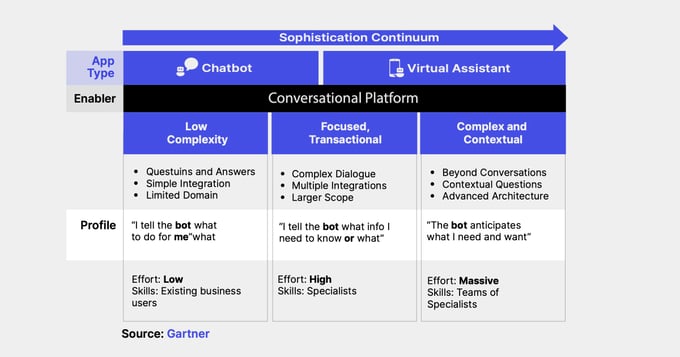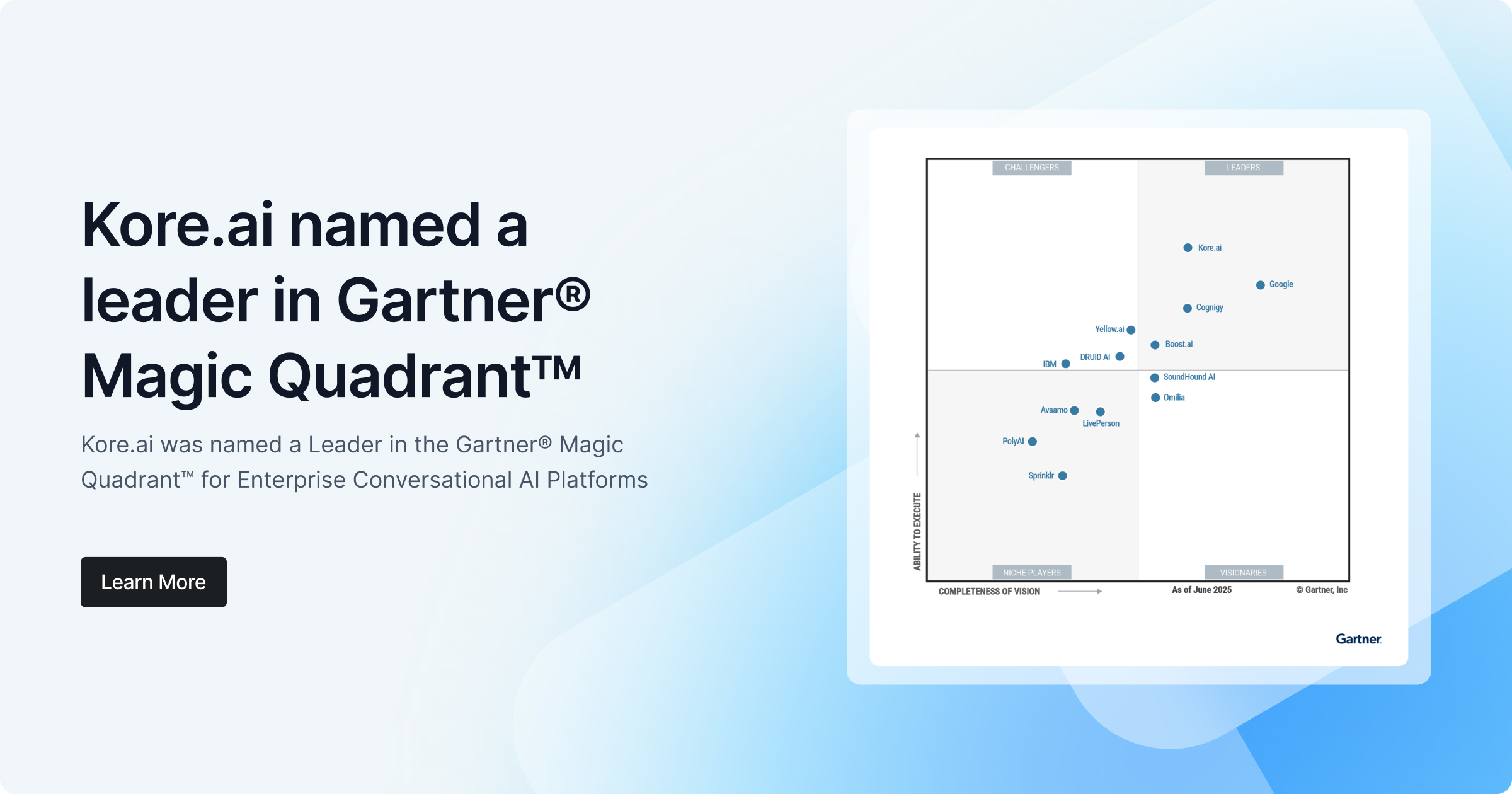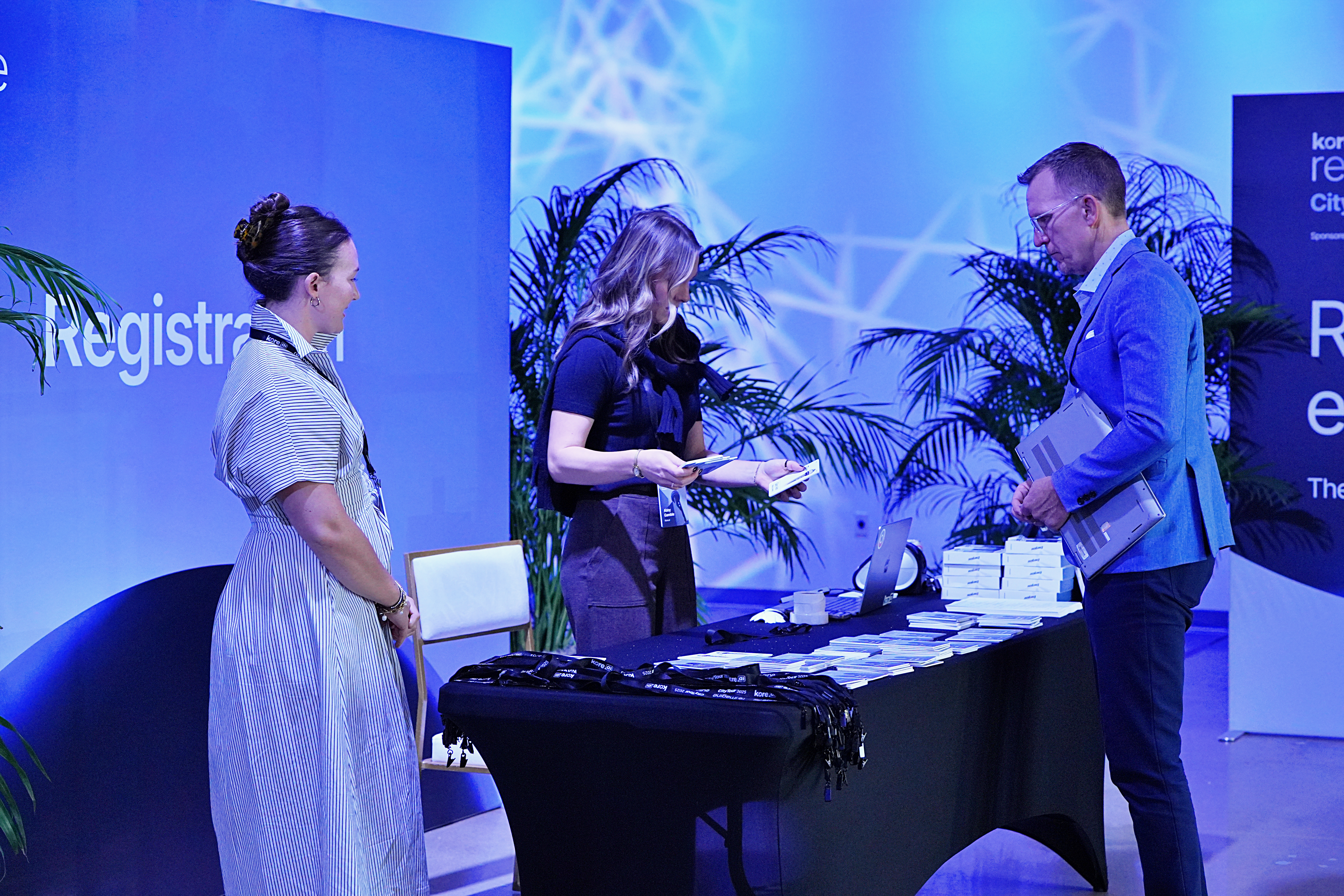Using bots has become a part of our daily lives and with the benefits they provide in reducing operational costs, enterprises have been looking for ways to implement them effectively. Many businesses have attempted to harness the power of chatbots to gain this level of efficiency but despite their best efforts, are still unable to generate the desired returns on investment.
Following the disappointing results of simplistic chatbot technology, companies are in need of better ways to engage customers and respond to inquiries. As consumers become more discerning with their digital interactions, a newer and more sophisticated artificial intelligence is emerging as the go-to market leader: conversational AI.
By leveraging rapidly evolving conversational AI technology, businesses are moving away from simplistic chatbots to provide their customers and employees with superior levels of convenience. To gain deeper insight into why this shift is happening, it's important to understand the differences between these two technologies and how they work in a modern world.
Why Basic Chatbots Struggle to Provide Enterprise Level Results
When users interact with basic chatbots, they often feel frustrated and as though their time is being wasted. This is usually caused by a lack of proper training, testing, and analysis to the chatbot leading to incorrect responses and user dissatisfaction.
Most of the chatbots that we come across can only answer FAQs and simple queries in a step-by-step decision tree style process. These chatbots cannot be made intelligent with robust Natural Language Processing (NLP) training and lack the ability to facilitate human-like contextual conversations. Inadequate testing of the chatbots is also one of the reasons for their poor performance, as they undergo manual testing (not covering all the test scenarios).
When it comes to enterprise level functionality, chatbots have major limitations and are unable to comprehend multiple intents within a single query. This makes it near impossible for them to fulfill more than the first request and causes irritation when a chatbot switches topics while trying to fulfill a request. They are also incapable of handling sentiments or responding to real-time chats. These issues cause users to quickly become frustrated and dissatisfied with chatbots and avoid using them as their primary source of customer service. In fact, many contact centers struggle due to this limitation with customers frequently opting to speak directly with a live agent over engaging in an IVR bot conversation.
Advantages of Intelligent Virtual Assistants over Chatbots

At first glance, IVAs and chatbots can seem similar but with a closer examination, the differences are very noticeable. A chatbot is a piece of software capable of automating simple responses in pre-programmed questions and answer format. They lack any intelligence. Intelligent virtual assistants (IVAs) however are, by nature, intelligent. They are advanced computer programs that can naturally understand, process, learn from, and respond to voice or text inputs.
Intelligent Virtual Assistants are powered by AI technologies, like conversational AI, that enable them to understand complex queries and offer intuitive responses. Conversational AI technology helps these IVAs to be more conversational, intelligent, personalized, and contextual. These AI-powered IVAs use a combination of machine learning (ML), speech recognition, and natural language processing (NLP) technologies to contextualize voice and chat conversations to figure out the best way to respond to user inputs.
Conversational AI-powered virtual assistants are able to offer superior assistance in that they offer a human-like conversational experience personalized to the user and can handle complex multi-turn support queries. In addition to all the functionalities of chatbots, intelligent virtual assistants can engage in small talk, understand multiple user intents in a single utterance, hold and resume conversations, intuitively respond to an unidentified request, and follow up with the users to cross-sell or upsell services.
The bottom line is that chatbots support strict rule-based conversations that force users to follow a predefined path while intelligent virtual assistants allow users to have a free-flow conversation to solve queries.
How Enterprises Benefit from IVAs
Intelligent virtual assistants offer voice and chat-based solutions for customer service, IT support, marketing and digital commerce. By utilizing the capability of conversational AI technology, enterprises have the potential to drastically enhance their customers' experience while reducing operational costs and raising employee output.
IVAs can help organizations with complex user requests and offer them more human-like conversations in real time. Conversational AI enables intelligent virtual assistants to do in-depth analysis and interpret data much faster than human capabilities. So, they can handle the volume and veracity of the data to self-learn and offer more contextual customer experiences.
IVAs can benefit companies in a variety of use cases, from automating repetitive, labor-intensive tasks to providing deeper business insights that create a more personalized customer journey. For example, an intelligent virtual assistant can be utilized by commercial banks to evaluate commercial loan agreements and negotiations. Even with attorneys and loan officers possessing the highest level of expertise, commercial loan agreements are still susceptible to human mistakes as a result of their manual review. This not only affects businesses financially but also adds time-consuming tasks that cost banks additional money. IVAs allow financial institutions to process loan agreements and assist with bill negotiations in significantly less time than a human would take while ensuring no mistakes.
Intelligent Virtual Assistants are next-gen applications that aim to deliver a human-like experience to users and can be used to create voice and chat-based solutions for everything from customer service, IT support, marketing and digital commerce. By leveraging conversational AI technology, businesses will not only elevate customers' experiences but also increase employee productivity while reducing costs.
Interested in learning more? Check out this whitepaper below to get an in-depth view of IVAs and their capabilities to learn how chatbots differ from intelligent virtual assistants and help you understand the benefits each technology can provide and know which use cases are suitable for your business.










